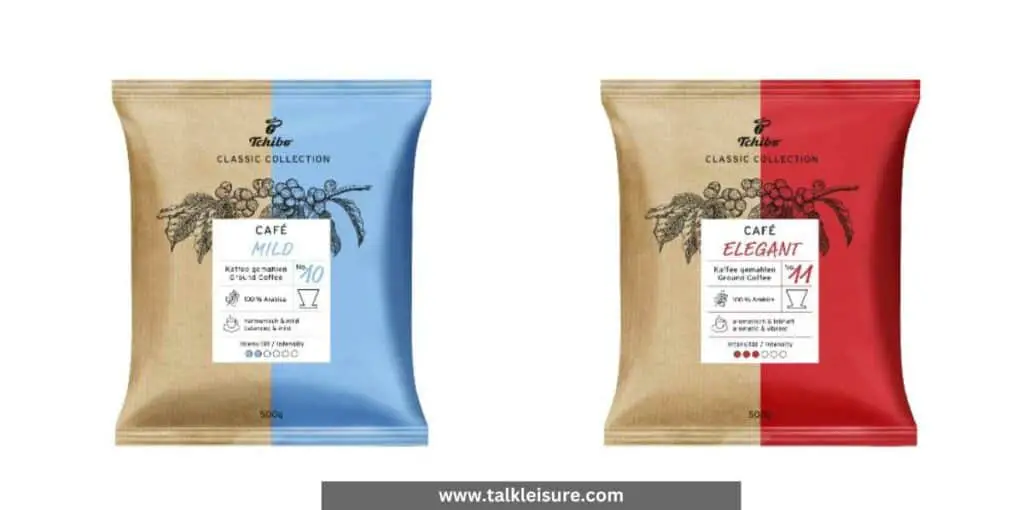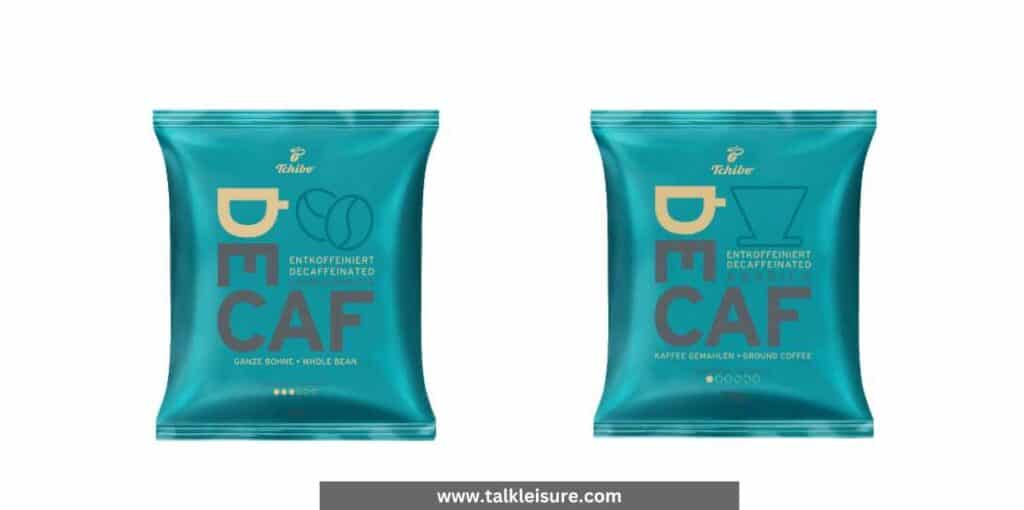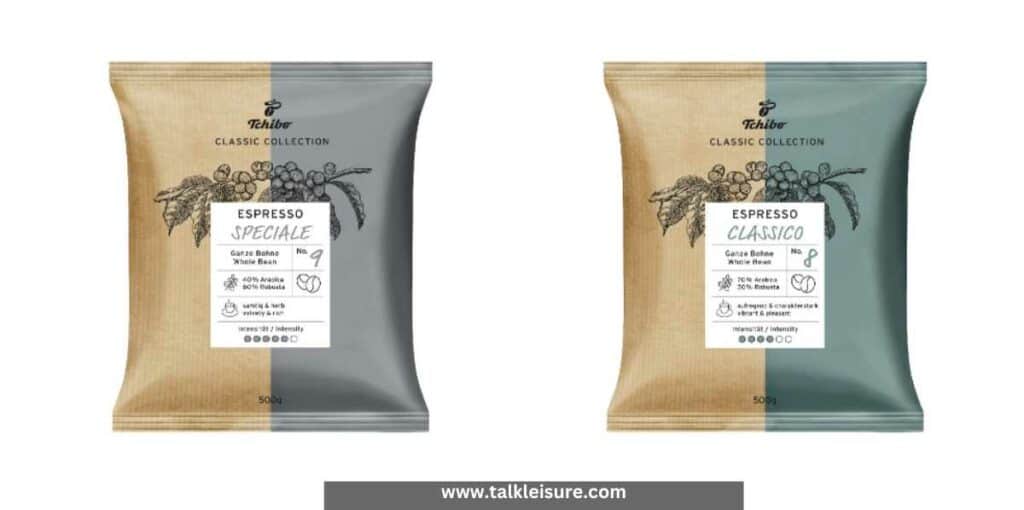If you’re a coffee aficionado, you’ve likely come across Tchibo coffee.
This German-based company has established itself as a global leader in the coffee industry, offering a range of premium products to consumers in various countries.
However, have you ever wondered where Tchibo coffee is made?
Tchibo Coffee is made in various countries around the world, including Ethiopia, Brazil, Honduras, and Colombia.
Join us as we take a closer look at the origins of this beloved coffee brand and discover the journey it takes from bean to cup.
Whether you’re a curious consumer or simply interested in learning about the coffee-making process, this post is for you.
So grab your favorite brew and let’s delve into the world of Tchibo coffee!
Tchibo Coffee And Its History
Let’s start with a brief introduction to Tchibo Coffee and its rich history.
Founded in 1949 by Max Herz and Carl Tchilling-Hiryan in Hamburg, Tchibo’s mission was to sell coffee by mail.
Today, Tchibo is one of Germany’s largest retail chains with over 1,000 shops and is the largest coffee shop operator in the country.
Its coffee is sold in supermarkets, and the company also operates around 550 branded cafes in Germany.
With its global reach, Tchibo Coffee has become a beloved brand across the world.
Tchibo Coffee has been delighting coffee lovers around the world for over 70 years.
Over the years, it has grown into one of the largest coffee roasters in Europe, with a global presence spanning over 60 countries.
Tchibo’s first shop opened its doors in Hamburg in 1955, and since then, the company has been dedicated to serving high-quality coffee to its customers.
Tchibo Coffee: A Global Brand

Tchibo Coffee is a global brand that has spread its retail concept across the world, offering everything from coffee to flowers and mobile phones.
Operating in over 60 countries, Tchibo has become a trusted household name in Europe and beyond.
The company’s strong brands guarantee variety and quality worldwide, ensuring that customers can expect a unique coffee experience, no matter where they are in the world.
Tchibo’s commitment to quality is evident in its goal to offer the best quality coffee to customers.
With a constantly changing menu of flavors and blends, Tchibo’s strong presence in the coffee industry continues to grow.
Tchibo Coffee is a global brand that has a strong presence in many countries around the world.
With over 1,000 shops in Germany alone, Tchibo is one of the largest retail chains in the country.
The company is also present in other countries such as Austria, Switzerland, Poland, and the Czech Republic.
Tchibo’s coffee is sold in supermarkets and other retail outlets, and customers can also order flowers through the company’s online shops.
In recent years, Tchibo has expanded its reach beyond Europe, with a growing presence in countries such as China, Malaysia, and Singapore.
This global reach allows Tchibo to source the best coffee beans from different parts of the world and deliver high-quality coffee products to customers worldwide.
In addition to its popularity in Germany where it originated, Tchibo Coffee is highly regarded in Austria, Poland, and the Czech Republic where it is the market leader in roasted coffee.
The brand has also gained a strong following in Russia and Switzerland.
Tchibo’s reach extends beyond Europe to countries like the United States, Canada, and Australia where its products are available in grocery stores and online.
The company’s commitment to quality and sustainability has helped to make it a trusted and preferred coffee brand in many parts of the world.
Tchibo Coffee Production

Tchibo Coffee offers a range of coffee types to suit different preferences from decaf to strong espresso.
Their production process involves adhering to strict quality standards to ensure every cup of coffee is of the highest quality.
Tchibo sources its beans from various countries, including Brazil, Colombia, and Ethiopia, where the unique features of each region’s coffee production contribute to the flavors and aromas found in each cup.
The company partners with local farmers to ensure sustainable and ethical production practices.
Through its commitment to quality and sustainability, Tchibo Coffee has become a global brand trusted by millions of coffee lovers around the world.
Tchibo’s Production Process
Tchibo Coffee takes great care in every step of their production process to ensure that only the highest quality coffee reaches their customers.
From carefully selecting the best beans to roasting them in their state-of-the-art facilities in Hamburg and Berlin, Tchibo Coffee prides itself on their attention to detail.
They offer a range of different coffee types to suit every taste preference, and all of their roasts meet the company’s strict quality standards.
Through partnerships with local farmers in countries like Central and Latin America and East Africa, Tchibo Coffee is committed to sourcing their beans ethically and sustainably.
The result is a delicious cup of coffee that customers can feel good about enjoying.
Different Types of Tchibo Coffee Available
Tchibo Coffee offers a wide range of choices for coffee connoisseurs around the world.
From whole bean coffee to ground coffee, from single-origin coffee to blends, Tchibo Coffee has something to suit every taste.
They have light, medium and dark roasts, and various flavors like vanilla, chocolate, and hazelnut.
Tchibo Coffee offers both caffeinated and decaffeinated varieties ensuring that customers have the option to choose what best suits their preferences.
In addition, Tchibo Coffee offers a range of coffee pods and capsules for those who prefer a quick and easy brewing method.
Whatever your preference, Tchibo Coffee is sure to have a coffee that tickles your fancy.
Quality Standards That Tchibo Coffee Adheres To
Tchibo Coffee holds itself to high standards when it comes to quality.
They only use the best coffee beans, carefully selected from high-quality regions across the world.
Tchibo strives to get the best quality coffee from its origin so it can deliver its customers with the same great taste they expect.
They believe that good and long-term relationships with suppliers are essential to this process.
Tchibo has invested in sustainable coffee growing along with human rights in global supply chains, packaging development, and waste reduction.
They prioritize freshness and quality control in every step of the production process, ensuring that their customers get the best possible product.
Tchibo is proud of its reputation as one of the top roasters and retailers globally, and it’s all thanks to the company’s commitment to quality at every step of the process.
Where Is Tchibo Coffee Made?

Tchibo Coffee is made in various countries around the world, including Ethiopia, Brazil, Honduras, and Colombia.
Each country’s coffee production has its unique features, which Tchibo leverages to create its high-quality coffee blends.
Tchibo sources its beans sustainably, partnering with local farmers to ensure fair prices and sustainable farming practices.
By doing so, Tchibo can guarantee that each cup of coffee is not only delicious but also ethically produced.
Tchibo’s commitment to sustainability sets it apart from other coffee brands and shows its dedication to providing its customers with a great product while also caring for the environment and the people who grow their beans.
Countries Where Tchibo Coffee is Produced
Tchibo Coffee is produced in several countries around the world, including Germany, Austria, Poland, and the Czech Republic.
Each country has its unique features in coffee production, making Tchibo Coffee a diverse brand.
The company sources its beans from local farmers, and they partner with them to ensure that the coffee is of high quality.
At Tchibo, quality standards are highly regarded, and the company is committed to producing coffee that is both delicious and sustainable.
With its global reach, Tchibo Coffee has become a household name in the coffee industry, providing quality coffee products to millions of customers worldwide.
Unique Features Of Each Country’s Coffee Production
Tchibo Coffee is produced in various countries, and each of these countries has its unique features.
For instance, Tchibo’s coffee from Brazil has a medium body and low acidity.
It is said to have hints of chocolate and almonds with a clean aftertaste.
On the other hand, Tchibo’s coffee from Ethiopia is known for its fruity and floral notes, and a delicate body.
Moreover, Tchibo’s coffee from Columbia has a balanced flavor with distinctive notes of caramel and nuts.
Tchibo Coffee sources its beans from the finest, sustainable coffee growing plantations across the world.
The company partners with local farmers to ensure maximum quality and traceability.
Tchibo is committed to buying coffee from sources that respect the environment and improve livelihoods.
Overall, Tchibo’s commitment to quality and sustainability ensures that their coffee beans are sourced with care, and their customers can enjoy great-tasting coffee across the globe.
How Tchibo Coffee Sources Its Beans And Partners With Local Farmers
Tchibo Coffee takes pride in sourcing the finest Arabica beans from the world’s best coffee-growing regions.
The company goes beyond just buying beans, as it partners with local farmers to ensure sustainability and quality standards are met.
Tchibo’s sustainability program, Tchibo Joint Forces!® qualification program, supports coffee farmers and their families in making a gradual transition to organic farming.
The coffee company trains and educates farmers on sustainable practices, which helps in conserving the environment, improving their livelihoods, and producing high-quality coffee.
Tchibo Coffee’s commitment to sustainability is not just about better coffee, but a better environment and world.
Tchibo Coffee’s Commitment To Sustainability
Tchibo Coffee has always been committed to sustainability, which is evident from their focus on sourcing their coffee from Rainforest Alliance Certified farms.
It’s not just about sourcing the coffee sustainably, as Tchibo believes that every aspect of coffee production must be transparent and ethical.
This includes supporting soil replenishment, promoting ethical practices for coffee-growing communities, and ensuring that all their sites operate sustainably.
Tchibo Coffee was even recognized as Germany’s most sustainable major company in 2016.
This commitment to sustainability ensures that every cup of Tchibo coffee is not only of the highest quality but also contributes to a healthier planet.
Conclusion
Tchibo Coffee is a global brand with a wide reach, producing high-quality coffee that is loved by millions of people around the world.
With its headquarters in Hamburg, Germany, Tchibo operates over 1,000 shops and is the market leader in roasted coffee in Germany, Austria, Poland, and the Czech Republic.
Tchibo sources its beans from multiple countries, with each region offering unique features in coffee production.
The company has a strong commitment to sustainability, with its Qbo coffee capsules made from renewable raw materials and Cafissimo coffee capsules fully recyclable.
By partnering with local farmers and adhering to strict quality procedures, Tchibo Coffee continues to deliver exceptional coffee to its customers while striving for a more sustainable future.
Happy Brewing!












